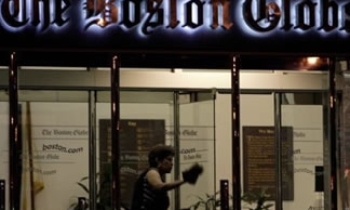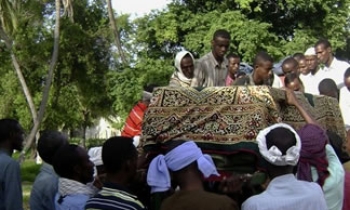A European court has awarded damages to an investigative journalist whose home was raided and computers confiscated after he published articles alleging fraud within the European Union.
In its ruling for the German reporter, Hans-Martin Tillack, the European Court of Human Rights said Tuesday that the right to protect the identity of sources is an essential pillar of freedom of the press. Though the court ruled against Belgium, rather than the European Union institutions, its decision is an embarrassment to the union, which has been trying to clean up its act since the mass resignation of the European Commission in 1999 over accusations of cronyism, the Associated Press (AP) reported.
On Wednesday, Tillack said that the ruling supported his claims that the authorities were more determined to identify the source of an embarrassing leak than to confront the abuses it appeared to reveal.
According to the International Press Institute (IPI), in early 2002, Hans-Martin Tillack, then the Brussels-correspondent for Stern (Star) magazine, published two articles critical of the European Anti-Fraud Office (OLAF), an agency responsible for investigating fraud in institutions of the European Union.
OLAF subsequently accused Tillack of obtaining some of his information by bribing a civil servant within the agency, and filed a complaint with Belgian judicial authorities. The agency’s allegations, later held to be "misleading" by the European Ombudsman, prompted a police raid of the journalist’s home and workplace in March of 2004. Multiple boxes of files, two computers and several mobile telephones were seized during the searches.
Tillack lodged an application with the ECtHR in May 2005, maintaining that the searches constituted a constitutional violation. In its judgment, issued on November 27, 2007, the court agreed, holding unanimously that the raid violated Article 10 of the European Convention on Human Rights, which protects freedom of expression.
The court noted that it was "evident" that the real purpose of the searches was to identify the journalist’s source, especially given that Tillack was never formally charged for the alleged bribery. It added that a journalist’s right to protect his or her sources was not a "mere privilege" but "part and parcel of the right to information," and therefore had to be treated with "utmost caution". The court awarded Tillack damages of EUR 10,000, as well as EUR 30,000 for incurred costs and expenses.
Tillack, now an investigative political reporter for Stern, acknowledged the changes to Belgian law, but he said that the judgment sent an important message.
IPI welcomed the judgment. "This case serves as an important reminder that investigative journalists are particularly vulnerable to ill-motivated accusations aimed at identifying the sources of sensitive information rather than any presumed illegal activity," said IPI Director Johann P Fritz. "The court’s clear condemnation of such activity is a welcome reaffirmation of the press’s right to perform its work without undue interference, governmental or otherwise and a forthright rejection of brazen fishing expeditions."
"At last this shocking violation of journalists' rights has been rectified," said Aidan White, European Federation of Journalists (EFJ) General Secretary, who in 2004 sat alongside Tillack, while Belgian police trawled through boxes of his personal files in an efforts to find a whistleblower inside the European Commission who had fed him information about financial scandals. "Now we want to know who ordered the police to be called in and why have the Belgian police taken so long to come up with a report."
EFJ, which supported Tillack in court cases against the Commission and in his appeal to the European Court, said the judgement once again reinforces the protection given by European law to journalists to protect their sources and against unlawful seizure of their material.
EFJ says that a full report of who authorised the action against Tillack and who delivered the demands to the Belgian police to investigate him must be made by the European Union Anti-Fraud agency OLAF. "It's time for OLAF to tell the full story," said White. "We can only draw a line under this case when we know that action has been taken to ensure this sort of vindictive acation against a reporter some people found troublesome will never be repeated."
The case shocked journalists working in Brussels and increased fears within the European journalists’ community that government officials and national police forces have increasing disregard for protection of journalists’ sources.









